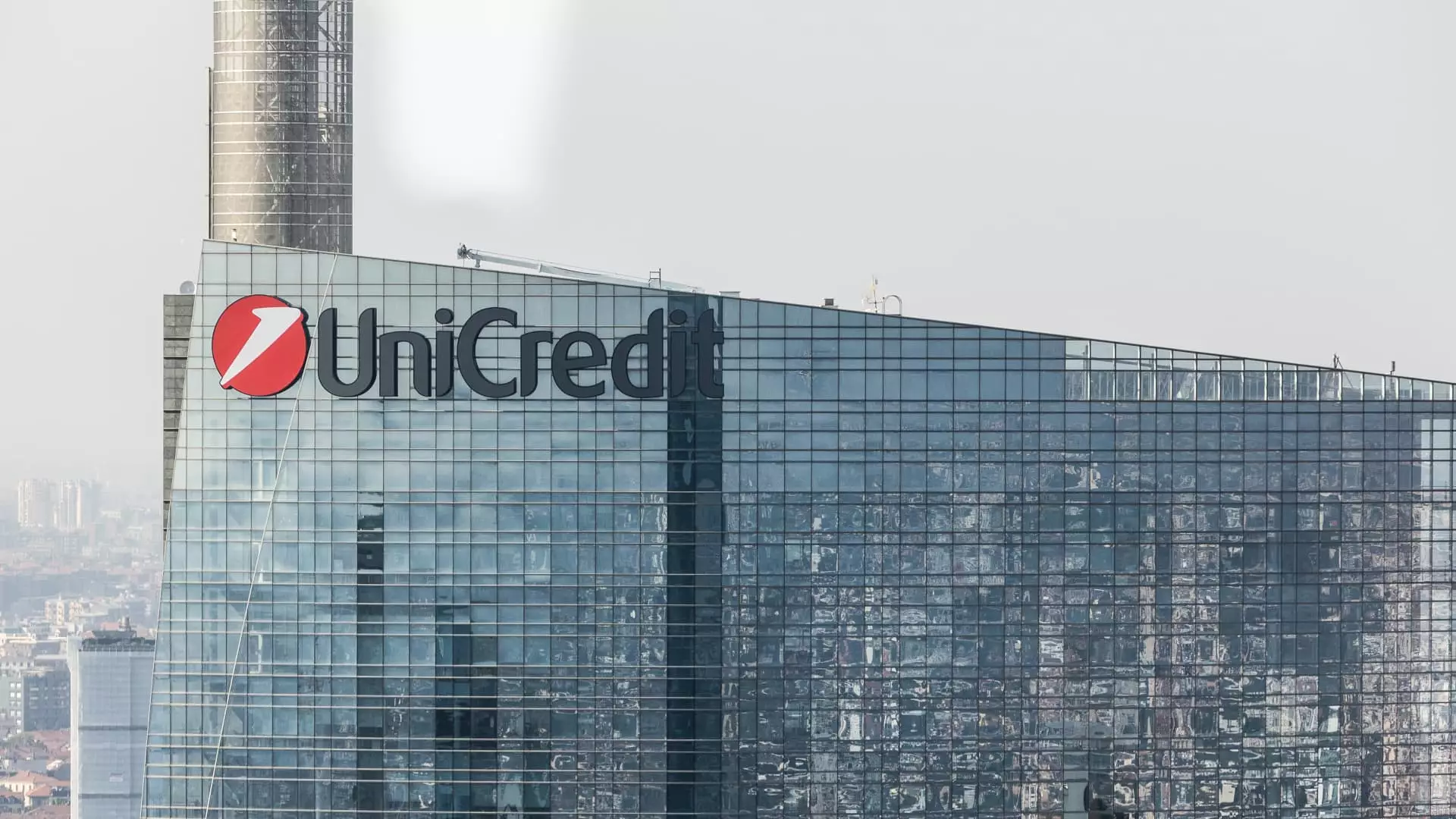In a landscape marred by political interference and inconsistent regulatory standards, UniCredit’s recent financial performance offers a misguided sense of triumph. While the bank reports a substantial 25% increase in net profit for the second quarter, it masks the deeper structural issues that threaten its stability. The surge, buoyed by one-off items and strategic moves in complex markets like Germany and Russia, does little to assuage doubts about the actual health of European banking institutions.
Laying the facade aside, a 4.7% decline in net revenues signals a worrying revenue compression. This decline questions the narrative of resilience that managers like Andrea Orcel project. Short-term profit gains do not necessarily translate into long-term success, especially when they hinge on irregularities or aggressive consolidation tactics. In a sector where trust and transparency are the bedrocks of sustainability, these financial maneuvers suggest a perilous overconfidence—one that could crumble in the face of future shocks.
UniCredit’s apparent optimism about reaching 10.5 billion euros in annual profit seems overly ambitious, given the underlying fragility of the European banking sector. The reported increase in return on tangible equity and the marginal rise in CET1 ratio, while positive, fail to address the vulnerabilities that persist across banking balance sheets, especially amid geopolitical turbulence and regulatory uncertainty. This superficial optimism risks blinding stakeholders to the broader economic vulnerabilities now embedded within the system.
Regulatory Overreach and Political Interference: A Threat to Genuine Market Competition
It’s simply irresponsible to ignore the growing influence of political power over financial institutions, especially in Italy’s case. UniCredit’s withdrawal from the proposed takeover of Banco BPM exemplifies how “golden power” interventions distort normal market mechanisms. Rome’s decision to exercise its authority not only thwarted a potentially beneficial merger but also highlights a broader trend of governments using regulatory tools as political weapons.
Such interference is dangerous because it erodes the principle of merit-based competition and incentivizes protectionism over innovation. UniCredit’s CEO Orcel’s candid acknowledgment that the deal had become “a drag” underscores how political hurdles are increasingly taking precedence over sound financial reasoning. This environment discourages strategic growth and encourages banks to adopt short-term defensive postures rather than focus on genuine value creation.
Furthermore, the European Union’s vocal criticism of national interventions demonstrates an awareness of the broader risk: regulatory meddling can stifle cross-border collaboration and hamper the sector’s ability to adapt and thrive. When governments wield their powers to block mergers that could potentially bolster resilience, they risk creating a fragmented financial landscape plagued by oscillating policies and inconsistent enforcement. Such chaos ultimately undermines investor confidence and destabilizes the entire European banking ecosystem.
The Myth of Stability: An Illusion of Resilience Amid Mounting Challenges
Despite the bullish outlook, especially with promises of shareholder dividends and projected profits, the reality remains far more concerning. The banking sector’s tenuous footing becomes clear when analyzing the geopolitical and regulatory hurdles that increasingly define its environment. The ongoing sanctions on Russia, for instance, limit operational flexibility and expose banks like UniCredit to political vulnerabilities beyond their control.
Additionally, the bank’s strategic ambiguity surrounding its future growth—highlighted by their focus on controlling the Italian market rather than pursuing aggressive international expansion—indicates a retreat rather than a robust path forward. Orcel’s assertion that M&A is merely one of many tools in the bank’s arsenal reveals a cautious, perhaps even defeatist, approach to navigating a turbulent geopolitical and economic landscape.
The focus on consolidating assets in markets like Germany, despite evident political opposition, raises questions about the credibility of the bank’s growth strategy. The goal of “strengthening” sounds noble, but in practice, it risks transforming into a cover for risk concentration and overexposure. The EU’s increasing scrutiny and criticism serve as a reminder that the sector’s reliance on political goodwill is misplaced; true resilience must stem from sound management and a clear strategic vision, not opportunistic mergers and political acquiescence.
The Critical Need for Regulatory Reform and True Institutional Integrity
Ultimately, the European banking sector’s peril lies not only in external political meddling but also in its failure to implement genuine reform. The current regulatory environment, which empowers governments with sweeping powers like Italy’s “golden power,” functions more as a tool for political protection than as a safeguard for economic stability.
To achieve a sustainable future, European banks must advocate for proportional, transparent, and predictable regulation—ones that prioritize economic stability over political expediency. This involves challenging the rollback of market-driven principles and safeguarding institutions from interventionist policies that distort competition. Without such reforms, the sector remains vulnerable to cycles of short-term gains, political shocks, and economic crises masked behind superficial financial performances.
In the final analysis, UniCredit’s recent financial feats prove that appearances can be deceiving. Beneath a veneer of robust profitability lies a fragile, politically entangled industry that risks losing its footing amidst mounting external pressures. It’s a stark reminder that true resilience isn’t built on short-term profit spikes or political favoritism, but on reform, transparency, and strategic clarity—principles that European banks desperately need to embrace with a critical eye and unwavering resolve.


Leave a Reply